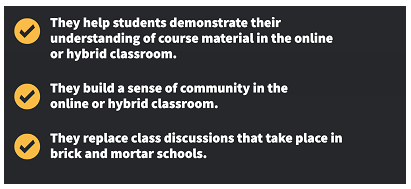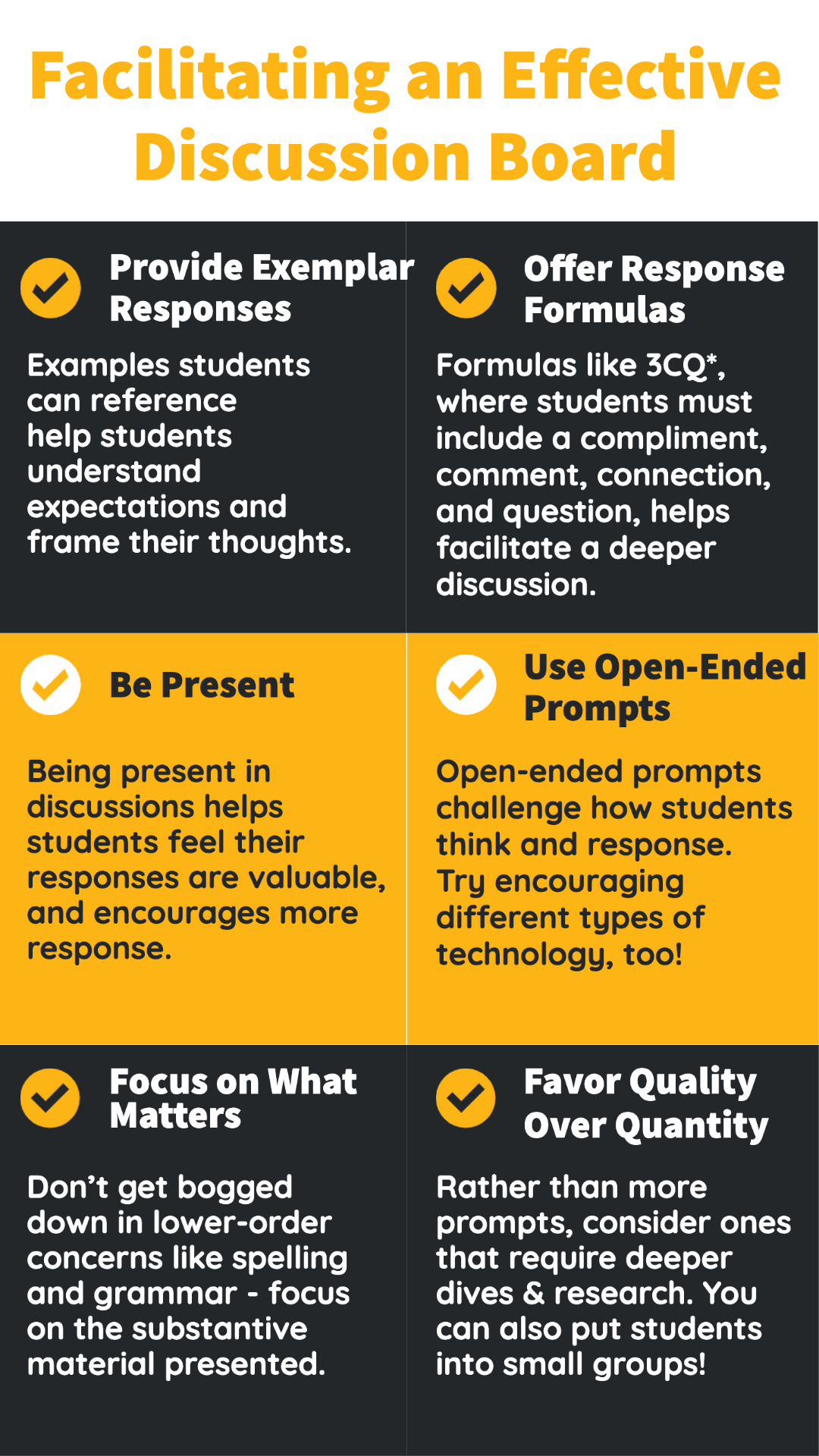Valerie Krahe – Strongmind Curriculum Developer
These are the answers. Can you figure out the question?

If you only looked at #1, you might have thought of this question: What is the purpose of assessments?
With the combination of #1 and #2, you probably thought of this one: What is the purpose of group projects?
But with #3 added, you probably figured something like this: Why use discussion boards?
The “whys” are many, with each benefit equally important and equally connected to increasing student engagement within a course. Here are a few benefits from using discussion boards in an online or hybrid setting:

Student to Student
Discussion boards, when constructed properly and taken seriously, can create a sense of community in the online as well as hybrid classrooms. But not just any community. The community that is created is academic – and so quite different from the communities the students may belong to through social media. This academic community requires well thought out, well researched, and professionally stated opinions. And it demands accountability, full participation, and transparency.
As such, the student develops relationships with fellow students that are different from the ones with which he or she might be familiar. Students do not necessarily become friends with their virtual classmates. Rather, they can become colleagues – where their objectivity, even in disagreement, generates mutual respect. Those specialized types of interactions help each student grow academically.

Student to Content
Discussion boards, when constructed using a number of different question types, can be a different vehicle with which to interact with course content. One which allows all students to participate equally. And one which can even allow students to use different technology.
In an on-ground classroom, discussion responses to content are face to face, verbal, and immediate. They can sometimes be dominated by one or two students. In discussion boards, that “discussion” still happens; students can elaborate on, disagree with, add further insights to, or evaluate the concept presented or the opinion in question. They can test hypotheses or develop counterarguments. But they have the added benefit of thinking things through first, revising their thoughts and methods of response before pressing send. That type of metacognition helps students strengthen their academic voices as well.

Student to Teacher
When a teacher sets the expectations ahead of time and is actively involved with the students, he or she can increase the worth of discussion boards in a student’s eyes. More importantly, the teacher can build a positive rapport with his or her students by participating. The teacher’s participation shows he or she values student responses and motivates them to respond thoughtfully and frequently. As well, a teacher’s responses can model appropriate discussion or debate behaviors.

Student to Self
The ability for a student to recognize and reflect on his or her individual responsibility in creating success for those around him or her is an important benefit of discussion boards, according to the Center for Teaching and Learning (2019). Furthermore, their ability to apply personal perspectives and experiences to discussions allows students to further develop their views in another way. Students can also practice offering substantive information when posting, preparing them for college and career.
As you can see, discussion boards have lots of good things going for them – from social benefits and metacognitive benefits all the way to academic ones!
If you’re considering using discussion boards in your classroom, check out these suggestions to help make the most of discussions:

Here’s one final suggestion: Don’t just take my word for it!
Give discussion boards a try and let me or others know how they went! Tag us on Twitter with addition thoughts or feedback #StrongMindED or @strongmindedu!
References
Developing Deep Reflection in Discussion Boards – Center For Teaching and Learning: Wiley Education Services
https://ctl.learninghouse.com/developing-deep-reflection-in-discussion-boards/





